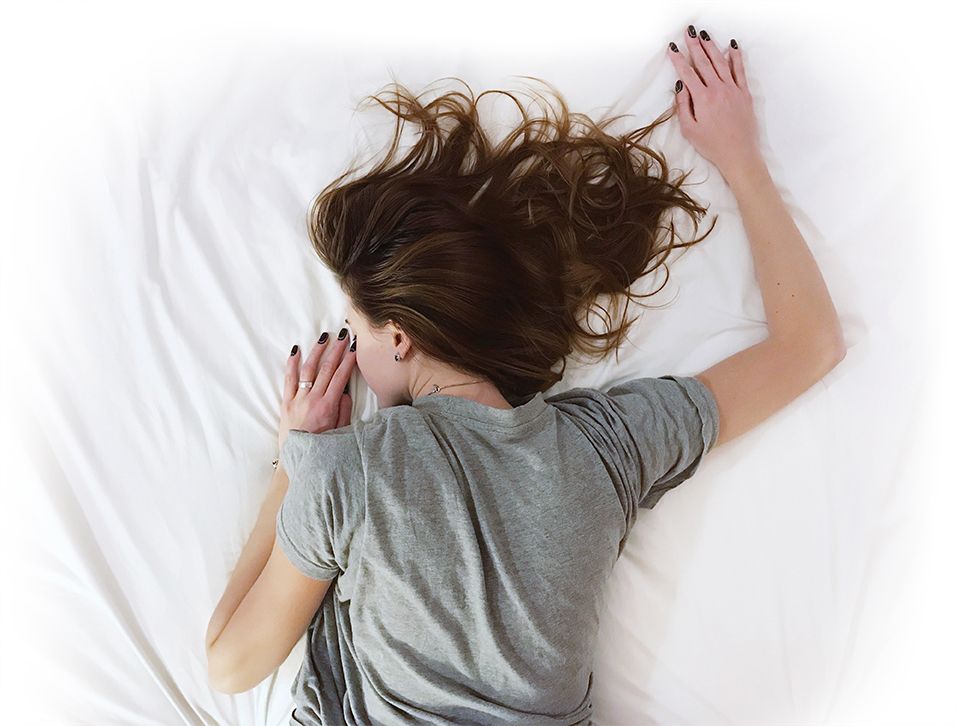We’ve always heard that the simple equation to losing weight is “burn more calories than you eat”. At first, this seems to make logical sense, and there is no doubt that your eating and exercise habits play a major role in whether you lose or gain weight.
However, what the “calorie equation” doesn’t factor in to the problem of weight loss is several other key components, such as hormones, stress and other emotional factors, the body’s toxicity, the kinds of food you eat (not just how much) and sleep quality.
And you may be surprised to hear that it is sleep quality that, according to recent studies, has the most impact on our overall health and wellbeing, and ability to live longer.
So does the amount and quality of sleep we get really affect whether or not we lose unwanted fat? Yes, it certainly does.
In her book The Calorie Fallacy, Dr Libby Weaver says, “Countless studies have shown that a lack of sleep can lead to weight gain. The calorie equation doesn’t factor in what a lack of sleep does to metabolism.”
Not only does a lack of adequate sleep lead to weight gain, it can be a significant hindrance to weight loss, because metabolism is slowed down and the body’s ability to burn fat as fuel is compromised.
There are several reasons why inadequate sleep negatively impacts weight loss:
- Lack of sleep increases the cortisol (stress hormone) levels experienced during the daytime. In another book, Exhausted to Energized, Dr Libby explains, “If you are churning out stress hormones and they are communicating to every cell in your body that you are not safe, your body does not want you to sleep deeply, as you need to be able to wake up quickly and save your own life.” When your body is constantly in a state of stress, it will hold onto fat rather than burn it.
- Next time you experience a lack of sleep, or even just a night without deep, quality sleep, keep a check on yourself whether the next day you find yourself hungrier and craving those naughty simple carbohydrates like chips and snack foods. Research has shown that ongoing sleep deprivation impacts on metabolism and usually sees a rise in hunger and appetite.
- When you’re not getting enough sleep and waking up as tired as when you went to bed, your overall activity and exercise levels tend to suffer. Not only is it harder to wake up and go for a run, but when you lack enough sleep, your body doesn’t get the recovery time it needs to make your next workout session more effective than the time before.
A study conducted by the University of Chicago, USA, demonstrated just how significant inadequate sleep can be on fat loss. Phase one of the study had its subjects put on a calorie-restricted diet while getting 8.5 hours of sleep per night. Then in the second phase, the only factor that changed was the amount of sleep, which was reduced to 5.5 hours. The difference in fat loss results were astounding: those who had 8.5 hours sleep lost 55 per cent more body fat over the time of the study.
It is safe to say, therefore, that getting enough sleep (7–8 hours is the recommendation for adults) can make a big difference to your weight loss journey.
How can we overcome the challenge of getting enough quality sleep?
In Exhausted to Energized, Dr Libby advises getting up at the same time each morning and going outside and moving. Commit to doing this for four weeks, every day. Your sleep, your serotonin and your energy will love you for it.
Create a wind-down routine at night that includes dimmed lights, no backlit screens such as smart phones, tablets and laptops, and some form of relaxation such as a warm bath, to prepare your body for bed.
Make dinner your lightest meal, four or more hours before you go to bed, and try avoiding dessert at night for increased sleep quality.
Practise diaphragmatic breathing for a couple of minutes before you go to sleep, and/or when you rise. This is the best way to communicate to your body that it is safe and can function in the “green zone” of rest and repair, which is when fat is turned into fuel.
Sleep in a dark room that is cool and has access to fresh air, ideally without any devices charging in there.
How helpful was this article?
Click on a star to rate it!
0 / 5. 0
Be the first to rate this post!
Alisha Christie
Related posts
Subscribe
Receive personalised articles from experts and wellness inspiration weekly!


